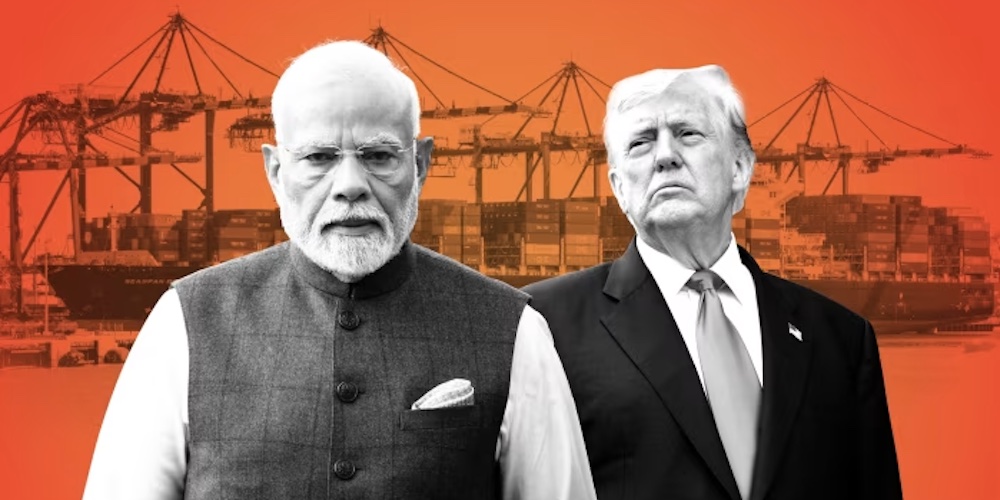DEALING WITH AN ANGRY AMERICA(N)

As a tumultuous August has ended, the New York Times reports that US President Donald Trump has reportedly “scrapped plans” to attend the ‘Quad’ grouping in India, amid deteriorating ties between Washington and New Delhi.”
The newspaper blames it on a June 17 phone call from PM Modi made to Trump, when the latter took credit for ending the India-Pakistan conflict. Trump “mentioned that Pakistan was going to nominate him for the Nobel Peace Prize” and that “the not-so-subtle implication, according to people familiar with the call, was that Mr Modi should do the same.”
The NYT adds: “Mr Modi’s refusal to engage on the Nobel has played an outsize role in the souring relationship between the two leaders, whose once-close ties go back to Mr Trump’s first term.”
Multiple thoughts crowd one’s mind, the foremost being: how did we get here? And what is coming next? Probably worsening of the India-US relations? Is Trump’s personal pique – that of a man who has failed to strike a deal – mark the word ‘deal’ that makes it purely transactional – the reason?
Did India overplay the Trump-Modi bonhomie? Trump called him “a terrific guy” this week. Was that tongue-in-cheek?
Does that explain how we allowed ourselves to be singled out for harsh treatment by a ‘friend’ turned global bully, when others across the world have struck deals?
How did we arrive at a situation where we are being hyphenated, after decades of registering faster progress for the world to note, with the oldest rival, Pakistan, which is wooed by both the US and China, and we are shown our place?

All three now converge closer to home. We lost the ‘friendliest’ of friends last year in Sheikh Hasina. She repeated many of the mistakes her father, assassinated 50 years ago, made.
We were again caught unawares by how the external forces facilitated the two downfalls. It is a sad repeat of history and has largely undone what was achieved in 1971. Adding to the challenges in the west and the north, it again makes us vulnerable on the eastern frontier. The likely surge of the Islamists in Bangladesh’s elections, scheduled for next February, could make it worse.
As August ends, hit by the tariff tornado, we are keeping options open. PM Modi ended the Japan visit on a positive note, and Australia said some things that should be music to our ears. He moves to the other side of the geopolitical kabaddi, attending the Shanghai Cooperation Organisation (SCO). For good measure, he said he was “looking forward” to meeting the Presidents, Xi Jinping and Vladimir Putin.
As the Wall Street Journal notes: “World leaders are flocking to China just as the Trump administration has frustrated Washington’s allies and partners, particularly in Asia, by imposing stiff trade tariffs while seeking an opening to Russia. Washington’s unpredictable foreign policy has also fueled doubts about the reliability of U.S. security commitments overseas.”
As India approaches the Global South, sending the right signals, albeit belatedly, and obviously prompted by Trump’s anger, a Russia-China-India alliance still seems unlikely. The balancing act would need to be more than just delicate in times when not being present amounts to being against.
(Author is a veteran journalist)


